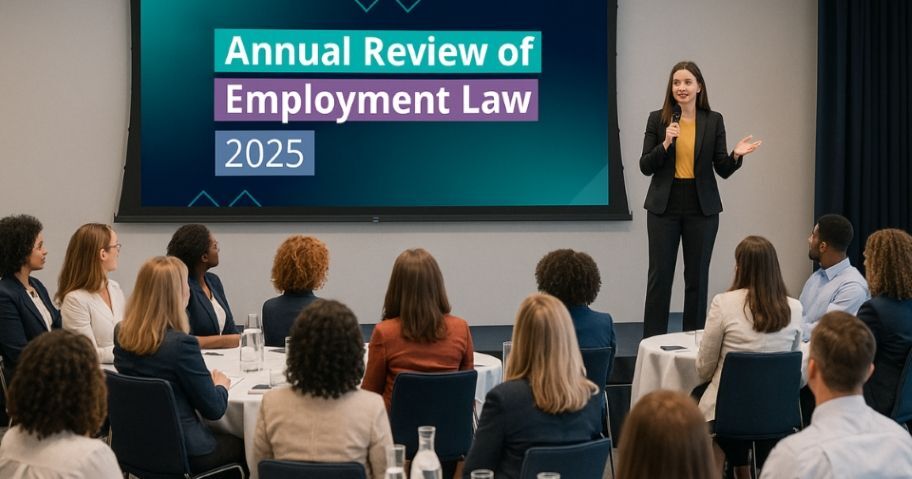
Caroline Reidy, Managing Director of the HR Suite and HR and Employment Law Expert. Caroline sold her company, The HR Suite, in 2025 to NFP, an AON Company, but continues to work in the HR Suite as Managing Director. Caroline is a former member of the Low Pay Commission and is also an adjudicator in the Workplace Relations Commission. Caroline is also an independent expert observer appointed by the European Parliament to the Board of Eurofound. Caroline is also on the Board of the Design and Craft Council Ireland and is a Governor on the Board of Munster Technology University.
She has also completed a Master's in Human Resources at the University of Limerick, and she is CIPD accredited as well as being a trained mediator. Caroline completed her diploma in Company direction from the IOD with a Distinction and completed her assessment to become a Chartered Director of the IOD. Caroline had worked across various areas of HR for over 25 years in Kerry Group and in the retail and hospitality sector, where she was the Operations and HR Director of the Garvey Group prior to setting up The HR Suite in 2009. She has also written 2 books, has done a TEDx and is a regular conference speaker and contributor to national media and is recognised as a thought leader in the area of HR and employment law. Caroline also mentored female entrepreneurs on the Acorns Programme. Originally from Ballyheigue, Co. Kerry, now living in Dublin, is very proud of her Kerry roots.
Auto-enrolment is a new retirement savings scheme for employees who do not already have a workplace pension scheme or an additional pension arrangement. Pension membership in Ireland, particularly among private-sector workers, has historically been low. According to recent data, only about 35% of private sector workers have supplementary pension coverage.
Many workers in Ireland, particularly in the private sector, do not have additional pension coverage and, as a result, will depend on the State Pension when they retire. This may see a reduction in their income and living standards when they retire. Auto-enrolment will increase both pension coverage and overall pension adequacy by making it easier for employees to access a quality assured retirement savings scheme.
Pension Auto Enrolment called “My Future Fund” is expected to commence on 01st January 2026 subject to the passing of the enabling legislation.
Who will be enrolled?
Employees who meet the following conditions will be automatically enrolled.
- Be aged between 23 and 60
- Earn more than €20,000 per year
- Not currently paying into a work or private pension through payroll – employees will not be enrolled if they are already paying into a workplace pension.
- People who are self-employed and those who are not currently earning an income through an employer will not be enrolled.
How will it operate?
The National Automatic Enrolment Retirement Savings Authority (NAERSA) will be set up to administer the auto-enrolment scheme. NAERSA will assess if you are eligible for auto-enrolment by using revenue data subject to data protection compliance and if you are eligible, they will automatically enrol you.
- it will eventually become an independent, statutory body
- it will tender for investment management, administration and fund accounting services
- it will collect contributions from the employee, employer and the State
- it will distribute contributions to the Registered Providers (approved financial institutions) for investment
- it will allocate investment returns to employee accounts
- it will operate the online portal where employees can see their account balance and make decisions such as opting out
- it will be responsible for compliance with the scheme
- it will ensure that the participants interests are at the heart of the system
- it will facilitate the ‘pot-follows-member’ approach whereby employees will have only one account with the National Automatic Enrolment Retirement Savings Authority over their working life
- economies of scale over time will allow the National Automatic Enrolment Retirement Savings Authority to keep fees and costs down
The auto enrolment scheme will be supervised by the Pensions Authority. It will have a statutory independence and will be governed by a Board of Directors. It will not replace the state pension but it does aim to supplement it.
The table below sets out the rates the employee, the employer and the Government will pay:
Year of the auto-enrolment scheme | Employee Contribution Rate | Employer pays | Government pays |
1 to 3 | 1.5% | 1.5% | 0.5% |
4 to 6 | 3% | 3% | 1% |
7 to 9 | 4.5% | 4.5% | 1.5% |
10 and after | 6% | 6% | 2% |
Employers who fail to meet their auto enrolment obligations may be subject to penalties and possible prosecution.
How are contributions collected?
Once an employee has been identified as eligible for auto-enrolment, NAERSA will send the employer an Automatic Enrolment Payroll Notification (AEPN) through payroll software.
This will inform them of the contribution amounts the employer and the employee need to pay as a percentage of gross earnings.
The employer will apply the AEPN and the contributions will be visible on the employee’s payslip.
The employer will have several options to pay the contribution amounts to NAERSA. The easiest way will be a variable direct debit, which can be set up through the auto-enrolment employer portal.
Contributions must be paid at the same time as the employee is paid, and contribution information must be provided to NAERSA.
If an employer does not use payroll software, they will be facilitated on the employer portal.
Opting Out
After employees are enrolled, they must stay in the pension scheme for at least six months. If an employee opts out six months after they are enrolled, their contributions will be refunded. Following a period of two years, employees who have opted out and that are still eligible will be re enrolled if they have not set up a work place pension in the interim.
Considerations for employers in order to prepare for pension auto enrolment
- all of your employees meeting the eligibility criteria, who do not already have pension coverage in respect of their employment with you will be auto-enrolled
- you will need to ensure that your payroll software, when updated, can take instruction for enrolment, calculate and pay employee and employer contributions to NAERSA
- you will be required to match members’ contributions up to an eventual maximum of 6% subject to an earnings threshold of €80,000
- if you fail to meet your auto-enrolment obligations as an employer, you will be subject to penalties and possibly to prosecution
Conclusion
Pension auto-enrolment represents a transitional change in Ireland’s retirement savings environment. While it presents operational and financial challenges, the long-term benefits for individuals and the broader economy are substantial.
For more information on the HR Suite:
Telephone: (066)7102887 (Head Office)
Visit https://thehrsuite.com
Continue reading
We help hundreds of people like you understand how the latest changes in employment law impact your business.
Please log in to view the full article.
What you'll get:
- Help understand the ramifications of each important case from NI, GB and Europe
- Ensure your organisation's policies and procedures are fully compliant with NI law
- 24/7 access to all the content in the Legal Island Vault for research case law and HR issues
- Receive free preliminary advice on workplace issues from the employment team
Already a subscriber? Log in now or start a free trial





